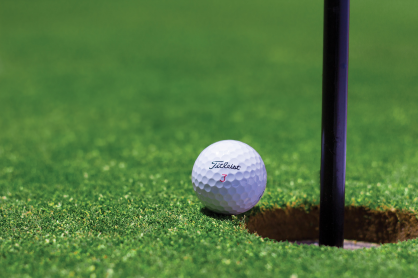Elevate Your Game with Premium Golf Gear from Sportzone
Golf is a game of precision, strategy, and skill, where the right equipment can significantly impact your performance. At Sportzone, we are committed to providing golfers of all levels with high-quality, reliable gear to help them elevate their game. Whether you're a beginner looking to get started or a seasoned pro aiming to refine your skills, our comprehensive collection of golf equipment has everything you need to succeed on the course.
Comprehensive Selection of Golf Clubs
One of the most important aspects of playing golf is selecting the right club for every shot. At Sportzone, we offer a broad range of golf clubs to suit various playing styles and skill levels. From drivers that help you achieve maximum distance off the tee, to irons that offer precise control for approach shots, our collection includes top brands known for their performance and durability.
-
Drivers: Our drivers are designed to maximize distance and provide a larger sweet spot, making it easier to hit long, straight shots. Whether you're looking for a club with adjustable settings to match your swing or a more traditional model, we have options to suit your needs.
-
Irons: Irons are the workhorse of every golfer’s bag, and choosing the right set is critical. Our collection includes game-improvement irons for beginners, as well as more advanced options for experienced players. With a focus on precision and forgiveness, these clubs are perfect for a range of shots from the fairway or rough.
-
Putters and Wedges: Accuracy around the green is just as important as power off the tee. Our putters are engineered for precision and control, while our wedges offer versatility for short game shots, including chipping and bunker play. These clubs are essential for improving your short game and lowering your handicap.
-
Hybrids and Fairway Woods: Offering a balance between the distance of a wood and the accuracy of an iron, hybrids and fairway woods are versatile clubs that can help you tackle a variety of course conditions. Whether you’re hitting from the rough or trying to reach a long par 5, these clubs are designed to give you greater confidence with every shot.
Top-Quality Golf Bags and Accessories
Having the right equipment to carry your clubs and stay organiSed is just as important as the clubs themselves. At Sportzone, we offer a wide range of golf bags designed to meet the needs of every golfer. Our collection includes:
- Carry Bags: Lightweight and easy to carry, ideal for golfers who prefer to walk the course.
- Cart Bags: Spacious with ample storage, designed for golfers who use a golf cart.
- Tour Bags: High-performance bags used by professionals, offering both style and functionality.
In addition to golf bags, we also offer a variety of golf accessories to ensure that you are fully equipped for every round:
- Golf Gloves: Enhance grip and comfort during your swing with our selection of high-quality golf gloves.
- Golf Tees: We stock durable, high-quality golf tees that help you get your shots off to the perfect start.
- Rangefinders and GPS Devices: Improve accuracy with rangefinders and GPS devices that give you precise yardage to the hole, helping you make better club selections and decisions on the course.
- Golf Balls: Whether you prefer a softer feel or more distance, we offer a range of golf balls designed to suit various playing styles and conditions.
Golf Apparel for Comfort and Performance
Comfort is key when you’re spending hours on the course. Our golf apparel range includes everything you need to stay cool, comfortable, and stylish while playing:
- Polo Shirts: Breathable and moisture-wicking golf polos that provide comfort and flexibility for your swing.
- Golf Shoes: Proper footwear is essential for stability and comfort, which is why we offer a selection of durable and comfortable golf shoes.
- Hats and Caps: Protect yourself from the sun with our collection of stylish and functional golf hats and caps.
Why Choose Sportzone for Your Golf Equipment?
At Sportzone, we pride ourselves on providing only the best golf gear to golfers across New Zealand and Australia. Here’s why Sportzone is the trusted name for golf enthusiasts:
-
Quality Assurance: We only stock top-quality golf products from leading brands, ensuring that every item you purchase meets the highest standards of performance and durability.
-
Wide Range of Options: Whether you’re looking for beginner-friendly equipment or advanced clubs, we offer a diverse selection to suit players of all skill levels.
-
Expert Guidance: Our team is dedicated to helping you choose the right golf equipment for your game. If you're unsure about which clubs or accessories are right for you, we offer expert advice to help you make informed decisions.
-
Affordable Prices: Golf can be an expensive sport, but at Sportzone, we believe in providing premium products at competitive prices, so you can enjoy the best gear without breaking the bank.
-
Fast Delivery: We offer fast and reliable shipping across New Zealand and Australia, ensuring that your golf gear arrives quickly and in perfect condition.
Get Ready for Your Next Round
At Sportzone, we’re passionate about golf, and we’re committed to providing golfers with the best possible gear to enhance their game. Whether you’re shopping for golf clubs, bags, accessories, or apparel, we have everything you need to perform at your best. Browse our extensive golf collection today and take your game to the next level!
Conclusion
Choosing the right golf equipment is crucial for both performance and enjoyment on the course. At Sportzone, we offer a wide range of high-quality golf products to help golfers of all levels play with confidence. From drivers and irons to golf balls, accessories, and apparel, we’ve got everything you need to succeed. Visit our golf section today to discover the best in performance and quality, and get ready for your next round!





